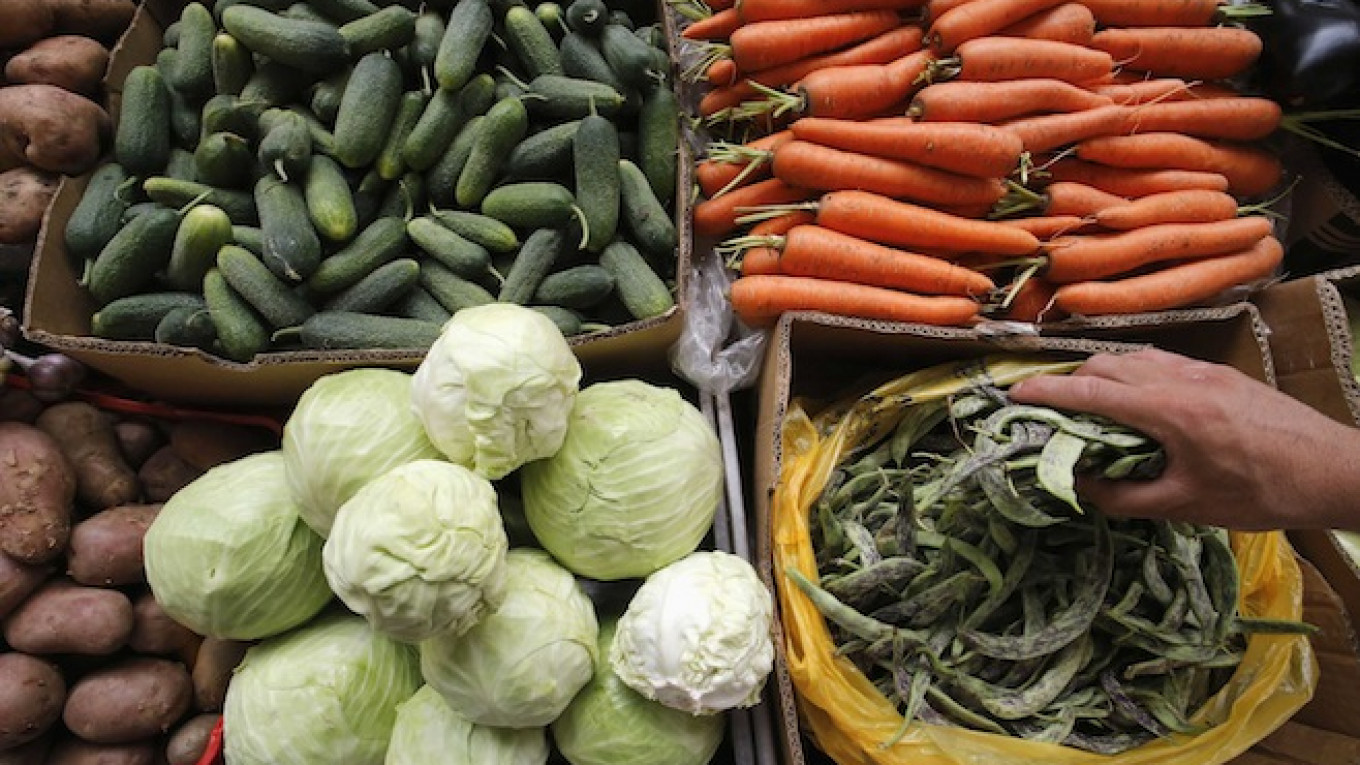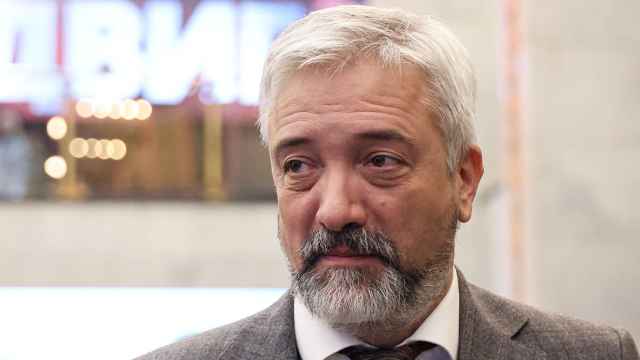ISTANBUL — Turkey and Latin American countries such as Brazil look likely to emerge as key winners from Russia's decision to ban most European Union and U.S. food imports in retaliation for Western sanctions over Moscow's role in Ukraine.
Russian Prime Minister Dmitry Medvedev announced the one-year ban on Thursday on all meat, fish, dairy, fruit and vegetables from the United States, the EU's 28 member states, non-EU member Norway — a major exporter of salmon — Canada and Australia.
Russia has become the world's biggest consumer of EU fruit and vegetables by far, the second biggest buyer of U.S. poultry and a major global consumer of fish, meat and dairy products, so the ban opens up big opportunities for other countries.
Russia's Federal Veterinary and Phytosanitary Inspection Service said Friday that it was holding meetings with food importers to discuss supplies from the new markets.
"We are having a meeting today with Turkey, which expressed willingness to increase supplies of vegetables and fruit," said Yulia Trofimova, a spokeswoman for the food safety watchdog.
"Latin America — Brazil, Peru — are ready to supply substantial volumes of meat. Brazil and Chile want to supply more milk and dairy products, Ecuador wants to supply shellfish and Peru and Chile — fish," she added.
Russians have taken to imported food with gusto since the fall of the Soviet Union, with Western-style supermarkets crammed with products from all over the world replacing the drab, often empty state-run stores of communist times.
Russia spent $25.2 billion last year on imports in the categories affected by the new bans, and nearly a third of that total from the countries hit.
Now the nascent middle class of Moscow and other cities could switch to Brazilian for U.S. beef and get their fish from Turkey and Chile instead of from Greece and Norway.
Turkeys from Turkey
Officials in Turkey predicted a near-doubling of their fruit and vegetable exports to Russia. Turkey is currently the fifth biggest exporter of food to Russia, its neighbor across the Black Sea, with sales worth $1.7 billion last year.
"Turkey exports about 1.2 million tons of fruit and vegetables annually worth more than $1 billion ... There is a chance these exports to Russia could double," said Mustafa Satici, head of the West Mediterranean Exporters' Association.
The start of processed white meat imports to Russia from Turkey could have a positive impact on Turkish poultry companies such as Banvit and Pinar Et, analysts said.
"Russia used to buy its processed white meat from the European Union. Over the past three to four days, Turkish firms have received many requests and price proposals from Russia," said Sait Koca, general manager of poultry company Beypilic.
Fish sales could also see a major boost, as Russia will no longer be able to buy fish from EU member Greece, one of its leading suppliers, Turkish traders said.
Turkey is a NATO member and a candidate for EU membership, though accession talks have slowed sharply and relations with Brussels have cooled markedly in recent years. Ankara has given no indication it will join the Western sanctions against Russia.
Much further afield, Brazil's secretary of farm policy said on Thursday that around 90 new meat plants in Brazil had been approved to export beef, chicken and pork to Russia and the huge farm producing nation was already working to increase exports of corn and soybeans sales to Russian buyers.
Russia's food safety watchdog said that some products from newly-approved Brazilian importers would start arriving in Russia in September, adding that it would consider extending the list of suppliers further.
"The Russian market is very interested in pork, beef, poultry, milk powder, butter, cheese, vegetables and fruit," the agency said in a statement.
Chilean salmon producers said they were "prepared to satisfy the increase in demand in [the Russian] market." Chile has been also exporting fruit to Russia.
A Russian official familiar with the plans on substituting the banned imports said that finding an alternative to Norwegian fish supply would be the toughest task.
"In general, there is panic only over fish. We were not prepared for it," said a Moscow-based seller of imported food.
See also:
Russia's Food Ban Against EU, U.S. Provides Huge Opportunity for Brazil
A Message from The Moscow Times:
Dear readers,
We are facing unprecedented challenges. Russia's Prosecutor General's Office has designated The Moscow Times as an "undesirable" organization, criminalizing our work and putting our staff at risk of prosecution. This follows our earlier unjust labeling as a "foreign agent."
These actions are direct attempts to silence independent journalism in Russia. The authorities claim our work "discredits the decisions of the Russian leadership." We see things differently: we strive to provide accurate, unbiased reporting on Russia.
We, the journalists of The Moscow Times, refuse to be silenced. But to continue our work, we need your help.
Your support, no matter how small, makes a world of difference. If you can, please support us monthly starting from just $2. It's quick to set up, and every contribution makes a significant impact.
By supporting The Moscow Times, you're defending open, independent journalism in the face of repression. Thank you for standing with us.
Remind me later.






